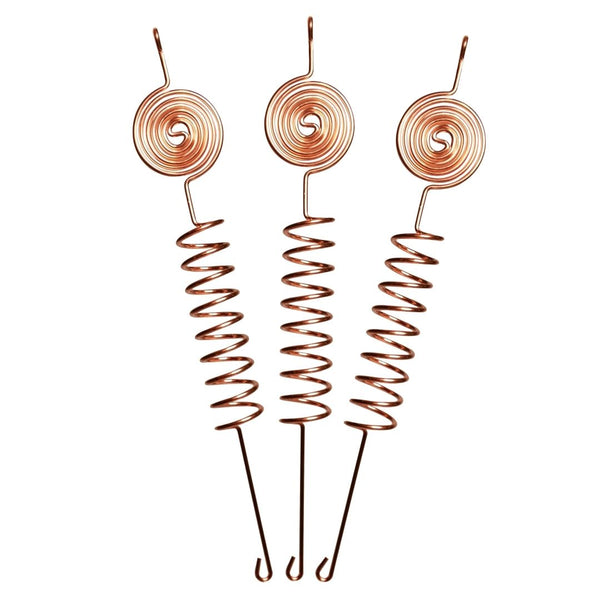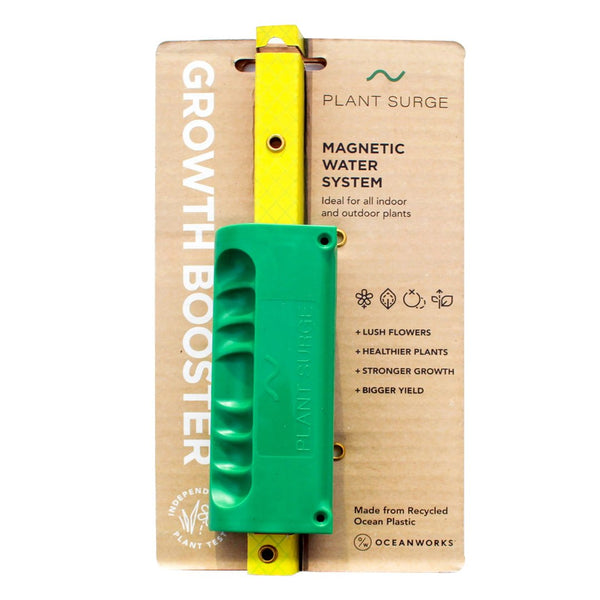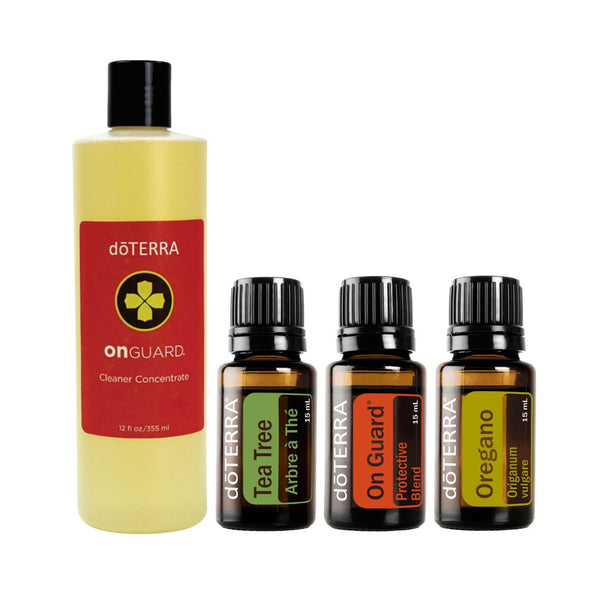The Electroculture And Magneto Culture Combination That's Creating Super Plants

Understanding Electroculture Gardening
Introduction to Electroculture
Electroculture gardening is like giving your plants a little extra pep in their step using electromagnetic energy. It's all about using techniques like magnetic water treatment to help plants grow stronger and healthier. This idea isn't new; it actually comes from ancient times when folks noticed that plants watered with rain from thunderstorms grew like crazy. That led to the creation of magnetized water, which is a big deal in electroculture (PlantSurge).
Benefits of Electroculture
Electroculture has some pretty cool perks that can make our gardening game stronger. Check out these benefits:
| Benefit | Description |
|---|---|
| Bigger Harvests | Electroculture can pump up crop yields by a whopping 20% (Money Saving Era). |
| Less Water Needed | This method can cut water use by half, which is great for saving resources (Money Saving Era). |
| Better Nutrient Absorption | Magnetic water treatment helps plants soak up minerals more effectively, boosting their health (PlantSurge). |
| Tougher Plants | Plants using electroculture techniques can fend off pests, diseases, and fungi better (PlantSurge). |
| Eco-Friendly Gardening | Electroculture is a green choice, cutting down on synthetic fertilizers and chemicals, perfect for those who care about the planet and their health. |
By weaving electroculture into our gardening routine, we can grow gardens that not only produce loads of goodies but also help keep our planet in tip-top shape. Want to know more about how this works? Check out our article on does electroculture work.
Implementing Electroculture Techniques
We're diving into the world of electroculture to give our plants a little extra oomph. By tapping into natural energies, we can boost plant growth in ways that are both effective and eco-friendly. Two standout methods in this green adventure are magnetic water treatment and atmospheric antennas. These techniques not only make our plants happier but also fit right in with our sustainable gardening goals.
Magnetic Water Treatment
Magnetic water treatment is like giving your plants a superhero drink. This technique uses electromagnetic energy to supercharge plant growth. The idea comes from way back when folks noticed that plants soaked in rainwater after a thunderstorm seemed to grow like crazy. This led to the creation of magnetized or structured water, a key player in the electroculture game.
Here's how it works: magnets treat the water, shaking up the water molecules to make them more plant-friendly. This means better mineral uptake and stronger plants that can fend off pests and diseases.
| Benefits of Magnetic Water Treatment |
|---|
| Better mineral uptake |
| Smarter water use |
| Tougher plants against pests and diseases |
This nifty trick is great for anyone from big-time farmers to backyard gardeners who want healthier crops without the chemical fuss. By adding magnetic water treatment to our gardening toolkit, we're setting the stage for plants that are not just surviving but thriving.
Atmospheric Antennas
Atmospheric antennas are another cool trick in the electroculture bag. These antennas grab the Earth's natural electromagnetic energy to give plants a growth boost. By lining them up north to south, we make sure the energy flows just right, helping our plants flourish.
These antennas can be made from stuff like copper or galvanized steel, which are great for catching energy. This method is a win for those of us who want to keep things simple and eco-friendly.
| Features of Atmospheric Antennas |
|---|
| Copper or galvanized steel wiring |
| North-South alignment for energy flow |
| Built to last through weather and rust |
With atmospheric antennas, we can build a garden that's tough enough to handle whatever Mother Nature throws at it. This technique is a perfect match for our quest to garden sustainably, cutting down on chemicals and boosting plant health.
By bringing these electroculture techniques into our gardening routine, we're not just growing plants; we're growing healthier, more bountiful gardens. Whether we're homesteaders focused on health or urban gardeners with an eco-friendly mindset, these methods give us the tools to nurture thriving gardens naturally. For more tips on getting started, check out our articles on electroculture gardening and electroculture antennas.
Electroculture for Different Gardening Needs
Electroculture gardening is like a secret weapon for all kinds of green thumbs. Whether we're health nuts growing our own veggies or city dwellers trying to make the most of a tiny balcony, electroculture can seriously up our gardening game. Let's see how different gardeners can use these techniques to get what they want.
Health-Conscious Homesteader
If we're all about growing our own food without the nasty stuff, electroculture is our new best friend. It boosts soil health and helps plants soak up nutrients like a sponge. The result? Bigger harvests and faster-growing plants, all without a drop of synthetic fertilizer.
| Benefits | Outcomes |
|---|---|
| Better yields | Up to 20% more crops |
| Speedy growth | Plants mature faster |
| Nutrient boost | Healthier, more nutritious food |
Eco-Conscious Urban Gardener
City gardening can be a real puzzle with cramped spaces and crummy soil. Electroculture is like a cheat code, letting us grow more with less water—up to 50% less (Money Saving Era). With electroculture antennas, we can set up a low-maintenance, chemical-free garden that thrives in tight spots.
| Challenges | Electroculture Solutions |
|---|---|
| Tiny spaces | Go vertical with electroculture antennas |
| Poor soil | Zap it to life with electrical stimulation |
| Water guzzlers | Cut water use with better moisture retention |
Veteran Gardener Looking for an Edge
For those of us who've been around the garden a few times, electroculture is like a secret sauce for plant growth and soil health. It kicks plants' natural defenses into high gear, making them tougher against bugs and diseases. With electroculture, we can breathe new life into tired soil and keep the harvests coming.
| Goals | Electroculture Benefits |
|---|---|
| Supercharge growth | Stronger plants with deep roots |
| Revive soil | More microbes and nutrient action |
| Drought buster | Plants that laugh in the face of dry spells |
New Gardener Seeking Guidance
Starting out in gardening can feel like trying to learn a new language. Electroculture makes it easy, offering a straightforward, budget-friendly way to grow healthy plants without needing a PhD in horticulture. With simple steps and low upkeep, newbies can enjoy a lush garden and pick up some handy skills along the way.
| Pain Points | Electroculture Solutions |
|---|---|
| Confidence crisis | Easy setup and care |
| Advice overload | Science-backed, no-nonsense methods |
| Fertilizer costs | Natural growth without breaking the bank |
Off-Grid Prepper
For those of us living off the grid, electroculture is a game-changer. It helps us grow food all year round with minimal outside help. This method boosts plant growth naturally, so we can keep our pantry stocked without relying on synthetic fertilizers or electricity. It's perfect for tough conditions and poor soil.
| Goals | Electroculture Benefits |
|---|---|
| Steady food supply | Plants that thrive in tough spots |
| Independence | Grow without energy costs |
| Year-round harvests | Better growth in tricky environments |
By tuning into what each type of gardener needs, we can see how electroculture and magneto culture can shake up our gardening habits. Whether we're aiming for bigger harvests, cutting out chemicals, or growing tough plants, electroculture is a friendly, effective way to get there. For more tips on getting started, check out our articles on electroculture gardening and electroculture antennas.
The Science Behind Electroculture
Let's dive into the nitty-gritty of electroculture and see what makes it tick. We'll take a stroll through its history and peek into the theories that make it a buzzworthy topic for garden enthusiasts.
Historical Background
Electricity and plants—who knew they could be best buds? Way back in the 18th century, a curious fellow named Abbé Nollet started poking around with static electricity and plants. Fast forward a bit, and the 19th and early 20th centuries saw a flurry of research on electroculture. Some folks claimed it could boost crop yields, speed up growth, and even keep pesky bugs at bay. But, like a rollercoaster, the results were all over the place, and electroculture never quite hit the big time.
| Year | Key Development |
|---|---|
| 18th Century | Abbé Nollet plays with static electricity and plants. |
| 19th Century | Electroculture research starts popping up. |
| Early 20th Century | Promising results, but not consistent enough. |
Theoretical Basis
So, what's the deal with electroculture? The theory goes that electric currents—whether from Mother Nature or a little human help—can give plants a leg up. The idea is that plants have been hanging out with Earth's electromagnetic field for ages, and even tiny tweaks in electrical vibes can shake things up. We're talking better ion exchange, nutrient transport, enzyme activity, and soil microbiology. All this jazz might just lead to plants growing like they're on steroids and soaking up nutrients like a sponge (Tn Nursery).
| Process | Potential Impact |
|---|---|
| Ion Exchange | Roots gobble up nutrients more efficiently. |
| Nutrient Transport | Nutrients zip around the plant faster. |
| Enzyme Activity | Metabolism kicks into high gear. |
| Soil Microbiology | Soil gets a health boost with active microbes. |
By getting a handle on the history and theories behind electroculture, we can see how it might jazz up our gardening game. If you're itching to try it out, check out our articles on electroculture gardening and electroculture antennas for some handy tips.
Practical Applications of Electroculture
Electroculture gardening is like giving your plants a little electric pep talk. We can go for simple tricks that anyone can try or dive into more complex setups for those who want to get fancy. Let's check out both sides of the coin.
Low-Tech Solutions
Low-tech electroculture is perfect for folks who want to keep it simple but effective. These methods don't break the bank and fit right into your usual gardening routine. Here are some easy-peasy options:
- Atmospheric Antennas: These antennas grab static electricity from the air, giving plants a growth boost. You can whip them up with stuff like copper or galvanized steel.
- Magnetizing Seeds: Before planting, give seeds a magnetic field treatment to help them sprout better and grow stronger.
- Electrified Grids: Lay down some low-voltage grids under the soil in your raised beds to perk up the soil and help roots dig deep.
| Low-Tech Solution | Description |
|---|---|
| Atmospheric Antennas | Snags static electricity to boost growth. |
| Magnetizing Seeds | Uses magnets to help seeds sprout better. |
| Electrified Grids | Uses low-voltage grids to improve soil and root health. |
These low-tech tricks are a hit with health nuts and eco-friendly city gardeners, as they help plants grow naturally without chemical fertilizers.
Elaborate Systems
For those who want to go all out, elaborate electroculture systems offer some serious perks. These setups mix tech and design to supercharge plant health and yield. Check out these examples:
- Battery-Powered Electrodes: These gadgets send a gentle electric current through the soil, kicking biological processes into gear to help plants soak up nutrients and toughen up.
- Integrated Electroculture Systems: These setups blend different techniques, like atmospheric antennas and electrified grids, for a full-on plant health strategy. They're great for seasoned gardeners looking for an edge or off-grid folks aiming for self-sufficiency.
| Elaborate System | Description |
|---|---|
| Battery-Powered Electrodes | Sends mild currents to boost nutrient absorption. |
| Integrated Electroculture Systems | Mixes methods for all-around plant health. |
These advanced systems are perfect for those who want to push the limits of regular gardening. They can lead to bigger harvests, sturdier plants, and healthier soil, making them a smart choice for dedicated gardeners.
By checking out both low-tech and elaborate systems, we can find the electroculture methods that match our gardening dreams. Whether we're aiming for bigger harvests or tougher plants, electroculture has a bunch of ways to hit our goals. For more tips on getting started, take a look at our articles on electroculture gardening and electroculture antennas.
















